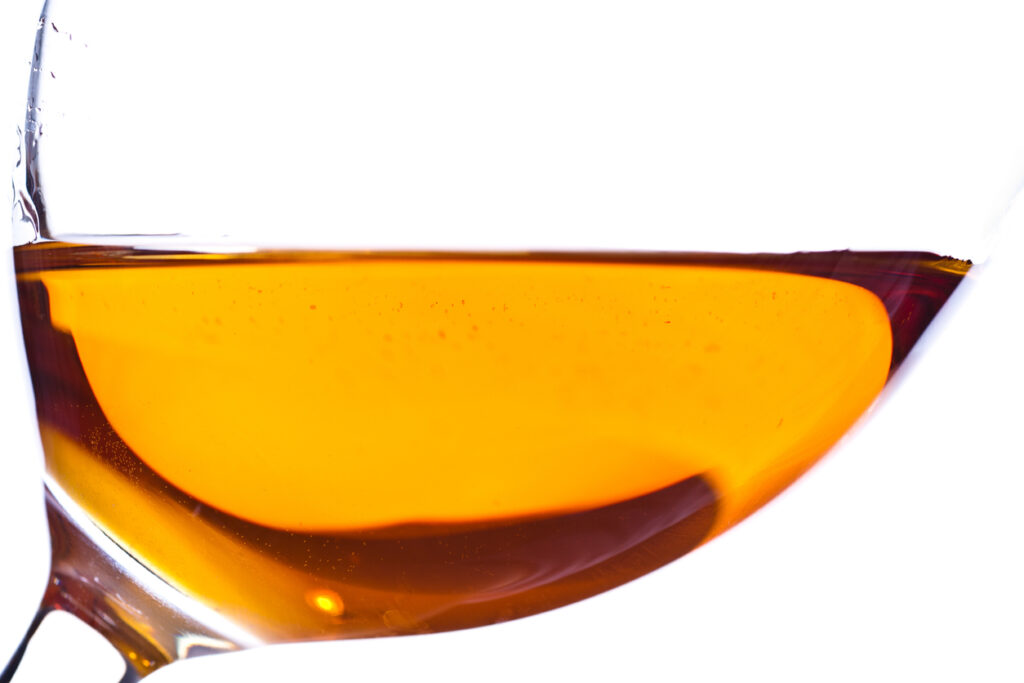Do you love the taste of port wines, but don’t want to spend a fortune on them? Or maybe you’re just looking for a port wine alternative to try. Either way, we’ve got you covered. In this blog post, we will discuss 11 wines that are similar to port wine which you can enjoy for a fraction of the price.
Profile of Port Wine
Port wine is a type of fortified wine that originates from the Douro Valley in Portugal. It is typically made with red grapes, although there are also some white wine and rosé styles. Port wine is renowned for its sweetness, although it can also be quite dry.
It is often aged in oak barrels, which adds to the deep flavors that give it its unique flavor profile. Some of the most common fruity flavors found in port wine include dark fruits, chocolate, and caramel. They are a great choice for poultry and seafood dishes too.

There are several different types of port wine. These including ruby port, tawny port, and vintage port. Ruby port is the youngest and most inexpensive type of port. It is typically fruity and light-bodied. Tawny port ages in oak barrels, which gives it a brownish color and a nutty flavor.
Vintage Port is the most expensive and highest quality type of port wine. Only the best wines from a particular year are used to make vintage port wine, and it can take decades for it to reach full maturity.
While port wine is the most well-known type of fortified wine, there are several other wines that are similar to port.
How is Fortified Wine Different from Regular Wine?
Fortified wine sets itself apart from regular wine through a unique process that involves the addition of distilled spirits mostly neutral grape spirit or brandy. This infusion not only elevates the alcohol content of fortified wines but also contributes to their rich and complex flavors.
Unlike regular wines that rely solely on fermentation for alcohol production, fortified wines undergo an additional step that results in a bolder and more intense taste profile.

Ageing of fortified wine vs normal wine
Fortified wines can age exceptionally well due to their higher alcohol content. This aging process allows for a greater depth of flavors to develop over time, creating a distinctive drinking experience.
While regular wines are often enjoyed young to preserve their freshness and fruitiness, fortified wines offer a compelling alternative with their ability to evolve into refined and nuanced expressions with age.
Why Should I Try Any Port Wine Substitute?
There are many reasons why you might be tempted to try wine substitutes for Port wine. For starters, Port wine can be incredibly expensive, especially if you prefer to buy a high-quality variety of port substitute or if you are entertaining guests.
Additionally, some people may simply not enjoy the taste of port wine and would prefer an alternative. Luckily, there are many wines that offer a similar flavor profile to port wine, making them suitable substitutes for this popular beverage.

Port Wine Substitutes
When it comes to finding a suitable substitute for port wine, many people are puzzled by the variety of options that are available. While many people assume that port wine is simply a red or rosé wine, the fact is that there are several types of similarly sweet fortified wines that make for excellent alternatives.
Let us take a look at the best port wine substitutes:
Sherry as Substitute for Port Wine
Sherry is a fruity wine that you can compare to port wine because of its rich flavor. Like port wines, sherry wines are made using the appassimento method, which involves drying the grapes prior to the fermentation process.

Additionally, both port wines and sherry wines are typically fortified using either grape brandy or a neutral spirit during fermentation. And finally, both of these wines have a deep amber or ruby color and are best paired with dark chocolate or rich dessert foods.
Overall, whether you prefer port wines or sherry wines, you will find both styles to be deliciously satisfying and deeply complex. So if you’re looking for wines similar to port wine, be sure to give sherry wines a try.
Cream Sherry as Port Substitute
Cream Sherry is a fortified wine that originates from the Sherry region in Spain. Unlike traditional dry Sherries, Cream Sherry is sweetened with grape juice or sometimes aged with Pedro Ximénez white grapes, to give it a rich and velvety texture. This unique sweetness makes Cream Sherry a versatile choice for pairing with desserts or enjoying as a decadent after-dinner drink.

Often compared to Port wine, Cream Sherry offers its own distinct flavor profile with notes of caramel, nuts, and dried fruits. Therefore it represents a suitable substitute for port.
Its smooth and luscious mouthfeel makes it a delightful option for those who prefer sweeter wines. Whether sipped on its own or used in cocktails, Cream Sherry adds a touch of elegance and complexity to any occasion.
Madeira as Port Wine Substitute
If you’re looking for substitutes for fortified wine like Port wine, Madeira wine is a great option. Madeira is a type of fortified wine that is produced on the Portuguese island of Madeira. Like port wine, this fortified wine is made from either red wine or white wine grapes that are fermented with brandy to yield this fortified wine.

The resulting wine is then aged in wooden barrels, which gives it a unique fruity flavor profile. Madeira wines are typically sweet and rich, with notes of caramel, nuts, and dried fruit. They pair well with other sweet dishes, desserts or cheese and make an excellent after-dinner drink. If you’re looking for a dessert wine with similar flavors to port wine, Madeira wine is definitely worth trying.
Vermouth as a Substitute for port wine
Vermouth is a type of fortified wine that is commonly enjoyed as an aperitif or before-dinner drink. Similar to wines that are made from port grapes, vermouth wines are characterized by their deep mahogany color and rich, complex flavor. It is one of the great substitutes for port wine.
Like port wines, vermouth wines are usually aged for several years in oak barrels. There are also many similarities between vermouth wines and other fortified wines, such as sherry and muscat wines. All of these wines tend to have a rich and slightly sweet taste, making them a perfect complement to cheeses, nuts, and fruit salads or other appetizers.

Whether you are looking for a crisp and refreshing sip before your next meal or just want to unwind with a glass of something special, vermouth is a perfect choice. So why not try one today? You’re sure to love its bold yet balanced flavor.
Puglia Primitivo as Substitute for Port Wine
If you’re looking for a unique and bold alternative to port wine, consider exploring red wines from the Puglia region of Italy. Known for their high alcohol content and rich flavors, these wines offer a complex profile that can rival the depth of a traditional port. With deep notes of dark fruits, spices, and earthy undertones, Puglia red wines provide a satisfying and intense experience for those seeking something outside the conventional.

The high alcohol content in these wines not only adds to their robust nature but also enhances their aging potential. Similar to port wine, Puglia red wine can develop nuanced flavors and complexities over time, making them a versatile option for both immediate enjoyment or long-term cellaring.
By embracing these lesser-known gems from Italy’s southern region, wine enthusiasts can expand their palate and discover a captivating substitute for port wine that offers a fresh perspective on the classic tradition of fortified wines like port.
Shiraz as Port Wine Substitute
Shiraz wine is another type of wine that is similar to port wine. You can find it as fortified red wine, which means that it has had extra alcohol added to it. This makes it a stronger red wine, and it also gives it a sweeter taste. Normal Shiraz wines aren`t fortified.

Shiraz is made from red grapes, and it is usually drunk as an after-dinner drink. This substitute for port wine It is often served with cheese or chocolate as a fortified red wine. It can also be used for seafood and poultry dishes or meat and poultry dishes too. If you are looking for red wines similar to port wine, then fortified Shiraz is a good option. It has a similar sweetness and strength, and it can be enjoyed in the same way.
Cabernet Sauvignon Wines as Port Wine Substitutes
Cabernet Sauvignon wines, known for their bold flavors and robust tannins, can serve as excellent substitutes for port wine in certain culinary scenarios. Their depth of flavor and rich texture make them a versatile option for pairing with various dishes, that traditionally complement port wine.
The complex notes of blackcurrant, tobacco, and cedar in Cabernet Sauvignon make it a great choice for pairing with rich cheeses or with dark meats and chocolate desserts, similar to how one would enjoy port.

Furthermore, the aging potential of Cabernet Sauvignon wines allows them to develop nuances add depth and complexities over time, akin to vintage ports. When serving a cheese platter or indulging in a post-dinner treat, opting for an aged Cabernet Sauvignon can provide a sophisticated alternative to the usual port selection.
Merlot Wines as Port Wine Substitutes
They are often similar to port wines in terms of their rich, sweet flavor, fruity flavors and light, acidic quality. Merlot wines typically have notes of plum, black cherry, and other dark fruit flavors, which give them a deep, jammy flavor that is very pleasing on the palate.

Additionally, merlot wines are often aged in oak barrels before being bottled, which adds some earthy undertones and highlights the wines’ layered complexity. And like port wines, merlot is typically lower in tannins than red wines from other varietals and can be enjoyed with or without food.
Overall, if you’re looking for wines similar to port wine that combine richness with high acidity and subtle hints of spice and woodsy notes, then merlot is a great choice. So, pour yourself a glass of this delicious red wine varietal today.
Marsala as Port Wine Substitute
Marsala wine is sweet red wine blend just like port wines. They are made in a similar style, and they have a similar flavor profile. Marsala wines are typically made from red grape varieties, and they are fortified with brandy.

This gives them a higher alcohol content than most other wines, and it also gives Marsala wine a sweeter intense flavor. Marsala wines can be enjoyed on their own or used as cooking wine. They are often used in Italian pasta dishes, and they are a popular ingredient in tiramisu. If you’re looking for a wine that is similar to port wine, then Marsala wine is definitely worth trying.
Late Harvest Riesling as Port Wine Substitute
Late Harvest Riesling is a versatile and underrated alternative to traditional Port wine. Its natural sweetness, high acidity, and complex flavors make it an excellent choice for those seeking a rich and satisfying dessert wine. Unlike the heavy and fortified nature of Port, Late Harvest Riesling offers a lighter yet equally decadent option that pairs beautifully with a wide range of desserts.

One unique aspect of Late Harvest Riesling is its pronounced floral and fruity notes, which can add a refreshing contrast to the typical nutty flavors and spicy characteristics found in Port. Additionally, the aging potential of Late Harvest Rieslings allows them to develop more nuanced flavors over time, similar to vintage Ports.
This makes them an intriguing option for those looking for a long-term investment in their wine collection without sacrificing quality or taste.
Non-Alcoholic Port Wine Substitutes
Non-alcoholic port wine substitutes offer a delightful alternative for those looking to enjoy the rich flavors of traditional port without the alcohol content. One popular option is non-alcoholic sparkling grape juice, which provides a similar sweetness and fruity flavor profile to traditional port wine.
Non alcoholic mulled wine as substitute for port wine
Another great substitute is non-alcoholic mulled wine, infused with aromatic spices like cinnamon and cloves for a warming and festive experience. These alternatives are perfect for those who prefer to avoid alcohol or are simply looking to switch things up in their beverage choices.

Substitute for port wine: Non alcoholic vermouth
For those seeking a more complex flavor profile, non-alcoholic vermouth can be an excellent substitute for port wine. With its herbal notes and bitter undertones, non-alcoholic vermouth offers a sophisticated alternative that pairs well with more savory dishes, snacks or cheese platters.
Fruit Juice as Port Substitute
Additionally, non-alcoholic fruit juice like cherry juice or cranberry juice, can also mimic the sweet and tart flavors typically found in fruit juice or traditional port wine, making it a versatile option for both sipping on its own or using in cocktail recipes.

Overall, exploring these non-alcoholic fruit juice alternatives can open up new avenues of enjoyment for those looking to expand their palate without compromising on taste or quality.
What Kind of Port Wine do I use for Cooking
When it comes to cooking with port wine, there are a few key factors to consider in order to elevate the flavors of your dish. One important aspect is choosing the right type of port wine for your recipe.
For savory dishes like beef stews, meat dishes or rich sauces, opt for a tawny port with its warm, nutty flavors and hints of caramel that can add depth and richness to your dish.

On the other hand, for dessert, savory recipes, or sweet dishes, a ruby port works best due to its vibrant fruity notes and slightly spicy undertones that can complement sugary ingredients perfectly.
Port wine substitute for cooking
When seeking a good substitute for for port wine in your cooking endeavors, consider using Madeira wine as a flavorful alternative. Known for its rich and robust taste, Madeira wine can bring a similar depth of flavor to your dishes as port wine would. Its slightly sweet and nutty undertones make it a versatile choice for sauces, marinades, and desserts alike.

For a more budget-friendly option, try using Marsala wine in place of port wine in your recipes. With its strong and earthy flavor profile, Marsala wine can add complexity to savory dark meat dishes such as stews or braised meats. It also works well in dessert recipes calling for port wine, providing a hint of sweetness without overpowering the other ingredients.
Alcohol free port wine substitute for cooking
Alcohol-free port wine or substitute port, is a versatile ingredient that can add depth and flavor to your cooking without the need for alcohol. One great option is to use grape juice or fruit juices mixed with a splash of balsamic vinegar to mimic the sweet and tangy notes of traditional port wine. This combination can be simmered down to create a rich reduction that works beautifully in sauces, marinades, and glazes.
Pomegranate Juice
Another interesting alternative is pomegranate juice, which offers a robust flavor profile with similar level of tartness and complexity as port wine. Its natural sweetness pairs well with savory dishes like roasted meats or braised vegetables, adding a unique twist to your recipes. You can also use cranberry juice due to its sweet character.

Apple Cider Vinegar
Additionally, apple cider vinegar mixed with a touch of sugar can also be used as a non-alcoholic substitute for port wine, providing acidity and balance to your culinary creations. Experimenting with these alcohol-free alternatives can open up new possibilities in your kitchen while catering to dietary restrictions or personal preferences.
Conclusion: 11 Wines Similar To Port Wine
One of the most popular types of wine is Port wine. This rich, sweet wine originates in Portugal and is often enjoyed as a dessert wine or a nightcap. If you’re looking for the best port wine substitutes you can consider one of the wines mentioned in this post.

